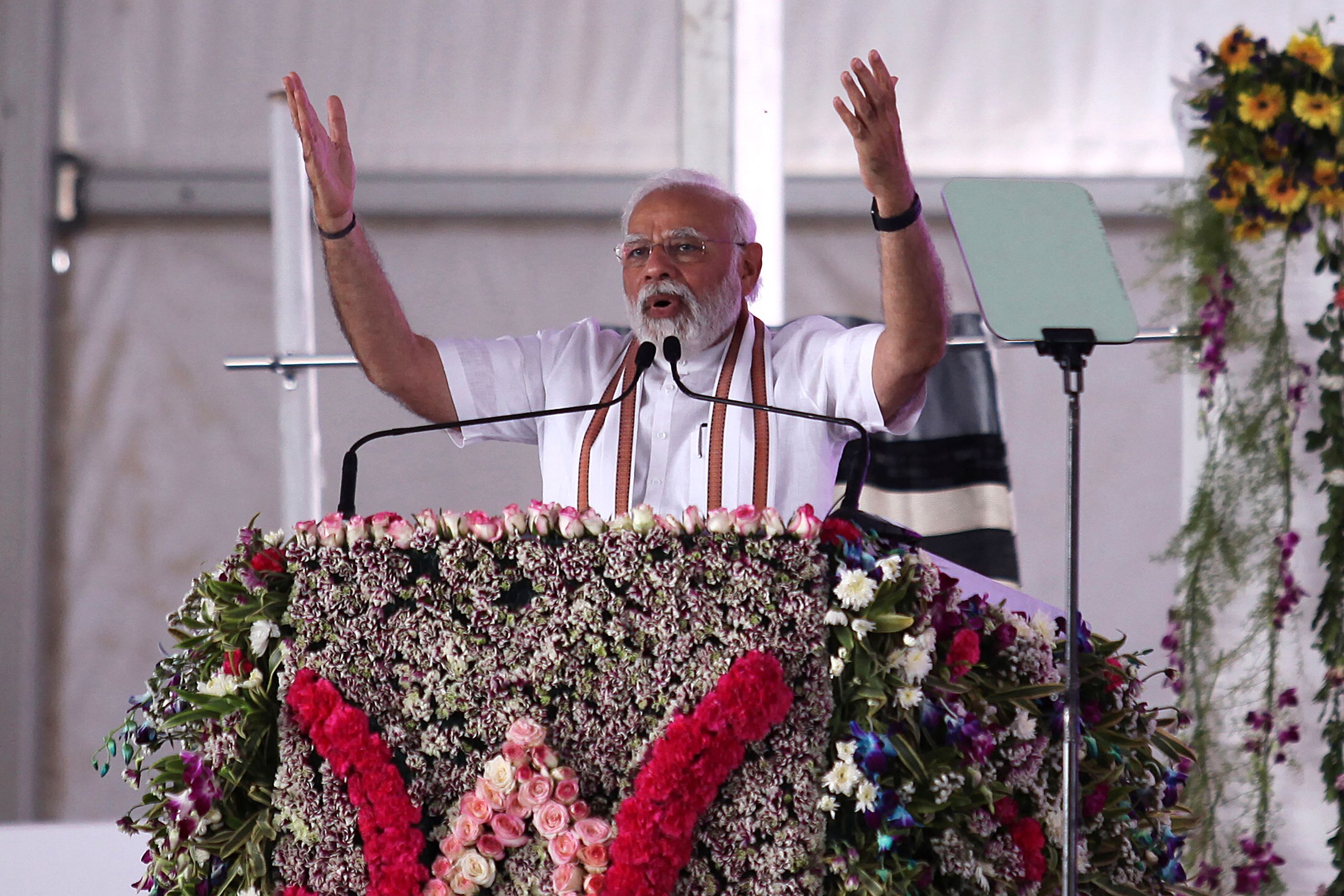Indian PM Modi visits Kashmir for first time since New Delhi stripped its special status two years ago
Modi announces several development projects worth £2bn

Your support helps us to tell the story
From reproductive rights to climate change to Big Tech, The Independent is on the ground when the story is developing. Whether it's investigating the financials of Elon Musk's pro-Trump PAC or producing our latest documentary, 'The A Word', which shines a light on the American women fighting for reproductive rights, we know how important it is to parse out the facts from the messaging.
At such a critical moment in US history, we need reporters on the ground. Your donation allows us to keep sending journalists to speak to both sides of the story.
The Independent is trusted by Americans across the entire political spectrum. And unlike many other quality news outlets, we choose not to lock Americans out of our reporting and analysis with paywalls. We believe quality journalism should be available to everyone, paid for by those who can afford it.
Your support makes all the difference.Narendra Modi visited Jammu and Kashmir on Sunday for the first time since New Delhi stripped the region of its semi-autonomous status in August 2019 and announced developmental projects worth 200bn rupees (£2bn).
During his visit to the Palli village of Jammu, the Indian prime minister also inaugurated several developmental projects.
Speaking at a function to commemorate the annual Panchayati Raj Day (grassroots democracy day), Mr Modi laid out the developmental achievements of his government.
“This year’s Panchayati Raj Day, being celebrated in [Jammu and Kashmir] marks a big change. It is a matter of great pride that when democracy has reached the grassroots level ... I am interacting with you all from here,” Mr Modi told the tens of thousands of people who had gathered in Palli village for his speech.
“The inauguration and laying of the foundation of projects of Rs 200bn took place today. This will give new impetus to the development of Jammu and Kashmir,” he told the village.
One of the power projects for which he laid the foundation was first commissioned by his predecessor, Manmohan Singh, in 2013, reported Associated Press.
Also referred to as one of the most militarised regions in the world, the erstwhile state has been under siege since Modi’s government revoked the region’s semi-autonomous status, annulling its separate constitution and splitting it into two federal territories: Ladakh and Jammu-Kashmir.
After removing protections on land and jobs guaranteed under the constitution, the authorities have put in a number of new laws in the centrally governed union territory, which critics argue could change Kashmir’s majority-Muslim demographics.
The region has had no elected government since 2018 when Mr Modi’s Bharatiya Janata Party (BJP) pulled support from then chief minister Mehbooba Mufti’s Peoples Democratic Party.
“Let me assure the youth of the valley that they will not face difficulties and tribulations that their parents and grandparents faced,” Mr Modi said, referring to the Kashmir Valley, the heartland of anti-India sentiment.
Earlier on Friday, Indian paramilitary forces killed two suspected militants in a gunfight some 15km from Palli.
The slain militants were a “suicide squad from Pakistan” likely sent to sabotage the prime minister’s visit, said police chief Dilbag Singh.
Additional reporting from the wires
Join our commenting forum
Join thought-provoking conversations, follow other Independent readers and see their replies
Comments